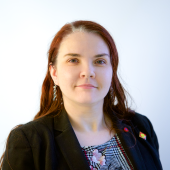
Researching Connecticut Ancestors: Four Centuries of History and Genealogy
Whether your family connection to Connecticut is 400 years old or 40, there is a treasure trove of genealogical resources waiting for you: vital records have been kept by towns since the early seventeenth century; newspapers have existed since colonial times; and there are thousands of published genealogies, local histories, study projects, and other references that exist for Connecticut research. Yet, Connecticut is not without its challenges. This online course provides a century-by-century look at the records, resources, repositories, and research strategies that are essential to exploring your Connecticut roots. We also discuss the historical context, settlement patterns, and migrations into—and out of—the state; from colony to statehood.
Class 1: 17th-Century Connecticut Research
Presented by: Melanie McComb
Many 17th-century Connecticut colonists have been researched and written about, but there remain research challenges: distinguishing people with the same name, deciphering hard-to-read handwriting, understanding unique record sets, and more. This first class looks at the beginnings of Connecticut, New Haven, and Saybrook Colonies and the people who inhabited the lands prior to colonization. We provide an overview of the many published genealogical resources and record transcriptions available, demonstrate how to locate and utilize primary sources, and discuss how to overcome common research challenges.
Class 2: 18th-Century Connecticut Research
Presented by: Melanie McComb
The 18th century was a transformative and foundational period for Connecticut: continued colonial conflicts, movement westward, revolution, the start of the abolition of slavery, and ultimately statehood. This session looks at just some of the many records of the era—pre- and post-American independence—including military records, tax lists, census records, newspapers, city directories, and more.
Class 3: 19th-Century Connecticut Research
Presented by: Christopher C. Child
Connecticut experienced even more transformation in the 19th century, from Civil War to the industrial revolution to an increase of immigration from across Europe, and beyond. This class discusses the start and impact of probate districts, the age of the passenger list, pension files, expanded vital records, and less commonly used records.
Class 4: 20th-Century Connecticut Research
Presented by: Christopher C. Child
Continued urbanization and industrialization characterized much of 20th-century Connecticut. This final session looks at records that emerge in the 20th century—including the special WWI Military Census for the state—and the changes in records and record keeping that persisted since the 17th century, with particular attention to the topic of “access” and the go-to repositories for Connecticut research.
Class 5: Planning a Research Trip to Connecticut
Presented by Jen Shakshober
Connecticut is teeming with historical societies, archives, libraries, and genealogical societies. Learn how to prepare for and make the most of your time researching in The Constitution State.



